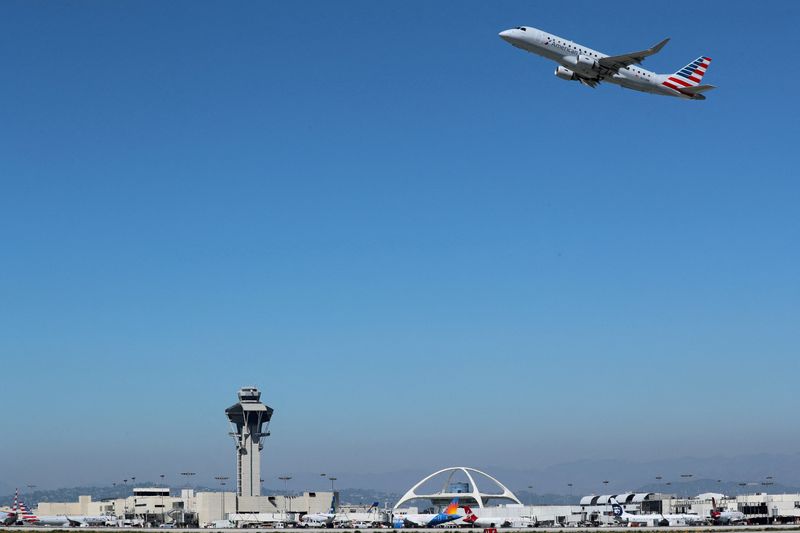By David Shepardson
WASHINGTON (Reuters) -A U.S. appeals court blocked on Monday the U.S. Transportation Department's new rule on upfront disclosure of airline fees pending a full review of the regulation, dealing a significant setback to the Biden administration.
Final rules issued by the DOT in April required airlines and ticket agents to disclose service fees alongside the airfare, in a move to help consumers avoid unneeded or unexpected fees, as part of an effort to tackle such fees over the last three years.
However, the rule "likely exceeds DOT's authority and will irreparably harm airlines", a three-judge panel of the Fifth U.S. Circuit Court of Appeals said, while granting the industry's request for a temporary block.
The case will be scheduled for a hearing at the next available session for oral arguments, it added.
American Airlines (NASDAQ:AAL), Delta Air Lines (NYSE:DAL), United Airlines, JetBlue, Alaska Airlines were among the airlines, joined by trade group Airlines for America and the International Air Transport Association, which sued in May to block the rules.
The rules set carriers an Oct. 30 deadline to disclose fee data to third-party ticket agents, and on their own websites by April 30, 2025.
The industry said the rule would require airlines to "spend millions" to re-engineer their websites, diverting resources from other projects.
The airline group declined to comment on Monday's ruling.
A DOT spokesperson said it would continue to defend the rule, adding, "Nothing in the court’s decision prevents airlines from voluntarily complying with this common sense rule that simply requires them to keep their customers fully informed."
Transportation Secretary Pete Buttigieg has recently voiced concern about the refund practices of airlines - notably Delta Air Lines - after cancellations triggered by a software update by global cybersecurity firm CrowdStrike (NASDAQ:CRWD) caused system problems for Microsoft (NASDAQ:MSFT), including many airlines.
In April, DOT said consumers were overpaying $543 million in fees annually, generating additional revenue for airlines from passengers surprised by fees who found they needed to pay a "higher fee at the airport to check a bag."
Major airlines charge such higher fees if travelers do not pay in advance or wait until flight time. Many large U.S. airlines boosted fees this year for checked baggage.

The rule would end "bait-and-switch tactics some airlines use to disguise the true cost of discounted flights," added the DOT, which bars airlines from advertising promotional discounts off a low base fare that excludes mandatory carrier fees.
U.S. airlines collected $7.1 billion in baggage fees in 2023, up from $6.8 billion in 2022.